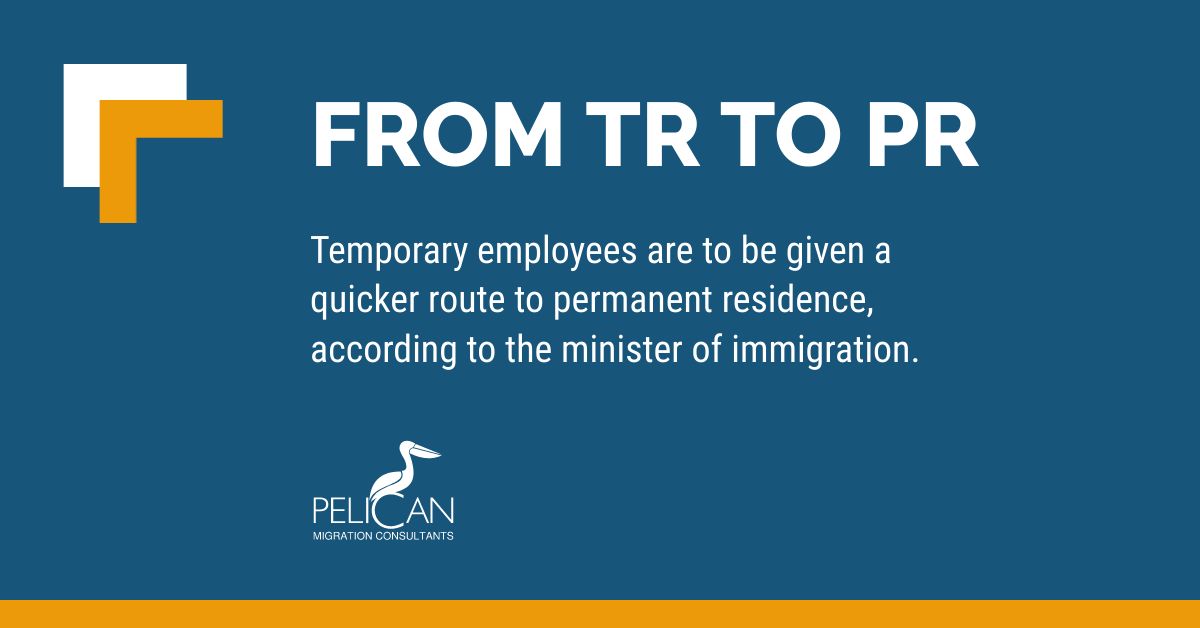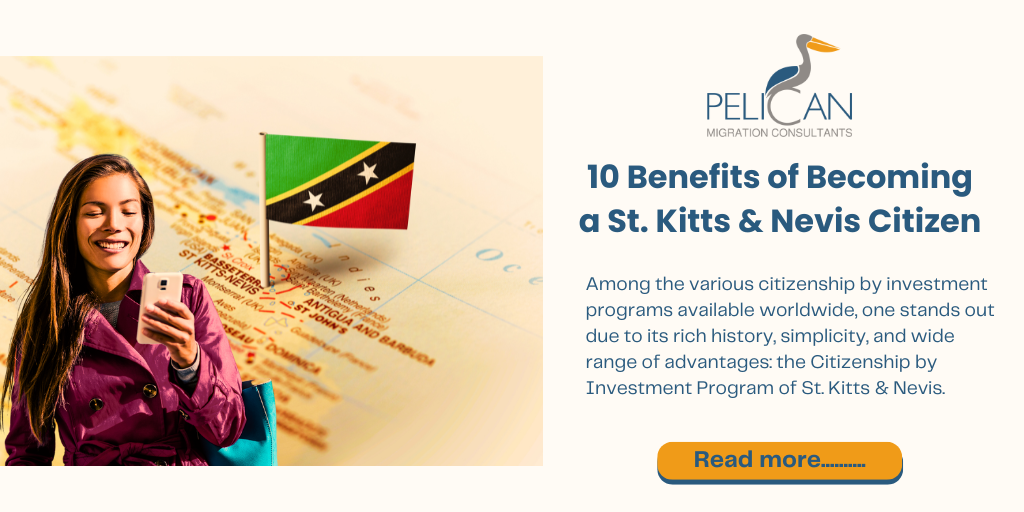
The Canadian government intends to give temporary employees a quicker route to permanent residence, according to the minister of immigration. The new program's goal, like the TR to PR Pathway, is to provide international students and temporary foreign workers with an immigration choice. Information was updated on September 20, 2022.
Top Six List Of Key Takeaways From Minister’s Report:
1. Work experience in essential industries will become more crucial.
It is astounding to think that Canadian businesses were actively seeking candidates to fill 957,500 unfilled positions in the first quarter of 2022, with more than 58% of them simply requiring a high school certificate or less. There will soon be a critical labor shortage in Canada. The Minister listed the specific industries on his hit list.
If you have work experience in one of the following industries, your chances of getting chosen for one of the Express Entry NOC Targeted Draws in the spring will be higher:
- Health
- Hospitality
- Transportation
- Trades and resources
- IT
- Engineering
- Agri-food
- Agriculture
- Construction
- Professional services
- Scientific and technical services
2. The availability and necessity of job offers from Canadian firms will increase significantly.
The chances of receiving the desired job offer from a Canadian employer in the upcoming months and years will be greater than ever as the country's economy continues to heat up and unemployment rates continue to decline. These job openings will be simpler to uncover in the targeted industries. These industries were chosen by the minister for a specific reason. Here, it is anticipated that there would be a labor shortage for both the short-term needs of Canadian businesses and the country's medium- to long-term economic goals.
Those who want to immigrate to Canada without having worked in Canada will have a difficult time being accepted. Choosing new PRs from the ranks of temporary residents will be given precedence, the IRCC has made very clear (primarily foreign workers). The report makes clear that “People who have previously worked temporarily in Canada integrate more easily into the labor force and are less likely to have problems with the transferability of their human capital.”
What does this imply for prospective Express Entry candidates? The days of needing only human capital to obtain an ITA are long gone. The analysis indicates that there are essentially just two ways to immigrate to Canada. You should either adhere to one of these two methods.
- Accept an employment offer from a Canadian business, get a work permit, and then apply for permanent residency after gaining Canadian work experience;
- Study in Canada, receive a PGWP and then submit a PR application.
French language skills and permanent LMIA employment offers can help level the playing field for the FSW applicant without any prior Canadian work experience. Furthermore, it is still possible for outlandish FSW applicants to win the lottery if a NOC number for a future Express Entry Targeted Draw falls on one for which the applicant has experience in the targeted industry.
3. Low-skilled work experience is now eligible for Express Entry in Canada.
In the past, the only class of employee that the Federal Economic PR initiatives actually valued was skilled labor (Skill Level 0, A, and B). Low and semi-skilled workers were essentially left in the dark up until the epidemic struck if they couldn't find a route through the many PNP programs. The outbreak caused a substantial shift in IRCC's priorities. Now, the emphasis is more on the actual demands of our labor market and less on arbitrary skill levels. The establishment of the TR to PR Pathway in 2021 was just the beginning. The Minister makes it clear that the forthcoming version of Express Entry, which is scheduled to go live in the spring of 2023, would offer greater opportunities for workers "at all skill levels." He is not talking about a new TR to PR Pathway, although it is still a possibility; rather, he is addressing specific changes to the Express Entry selection process.
This might provide some comfort to low-skilled workers in Canada, but it's important to note that the Minister is probably referring to the reclassification of some professions under the new TEER(representing the requisite Training, Education, Experience, and Responsibilities of each occupation) System (NOC 2021), which is scheduled to start in November of this year. Just keep in mind that the aforementioned sectors will continue to take precedence.
4. Canada's rural areas are expanding.
The annual levels of intentions for economic immigration have increased to never-before-seen levels over the last few years. The PNPs, rural areas, and now municipalities have benefited from a surge in population. The IRCC understands that each province, community, and municipality is best qualified to assess its own labor requirements. As a result, initiatives like the Rural and Northern Immigration Pilot Program are expected to lose their "Pilot" status and become permanent programs, just like the Atlantic Immigration Program just did.
A new Municipal Nominee Program that is now being developed is once more mentioned in the Minister's strategy. The initiative was first introduced in 2019. Uncertainty surrounds how significantly this program will diverge from RNIP and other PNP-based rural and community programs. One thing is certain, though: candidates who are ready to relocate outside of Canada's big metropolises will have better chances for public recognition than those who opt to dwell there.
5. The importance of knowing French has never been greater.
All it takes to understand the significance of this remark is to consider how French language proficiency affects the Express Entry Draws. For FSW candidates outside of Canada hoping to enter the very competitive "No Program Specified" draws, an additional 50 or more CRS bonus points for French language proficiency has been a game changer. Therefore, if you even have a basic command of French, start practicing. The sooner you learn French, the sooner you will be able to purchase your plane ticket to Canada.
The IRCC's commitment to reaching its 4.4% French-speaking target by 2023 has been well-known for some time. To do this, minority francophone cities outside of Quebec are currently very much on the agenda. If you want to study or work in Canada and speak French, Quebec does not have to be your first choice. You might even find that, as a French speaker outside of Quebec, you have more possibilities for PR as a result of the IRCC's mandate.
6. International students should plan their studies carefully in Canada.
A recognition of the lack of variety among our international student groups was gently concealed within the report. The International Student Program's supply countries need to be more diverse, the IRCC acknowledged. It is said that they will start issuing more study permits from other nations and fewer from China and India. As a result, it is critical now more than ever for students to make informed choices about their education. To extend your PGWP to three years, you must complete two years of study.
The IRCC has made it obvious that they prefer it when students enroll in academic programs outside of the big metropolises. Almost every PNP has some sort of incentive built into its programs for students who decide to attend school there and remain long-term residents. You must identify the provinces with the greatest programs and the fewest graduates vying for those jobs after completing your studies and fulfilling any work experience requirements.
Additionally, you should consider the industry in which the program is located when selecting one. Choose a curriculum within one of the IRCC priority industries listed if you want to improve your chances of obtaining PR in Canada. Instead of only picking a business, management, or public administration degree, extend your horizons and look for a program that not only fits your study plan in your study permit application but also one that is in line with where jobs are available after graduation in Canada.
Would you like to migrate to Canada?
As one of the leading immigration consultants in Dubai, our major objective is to provide you with all the information you need to make good decisions. We help you plan and manage your immigration to Canada so that you can finally live a prosperous life in the nation of your desires.
Given that immigration standards and laws are always changing and difficult to understand and continue, it is essential to contact Canada immigration consultants which can help you and guide you throughout the procedure. We provide expert face-to-face help to ensure that you present your best performance in front of Canadian immigration, we help customers by estimating their prospects to be obtained, preparing them for visa and visa interviews, and by building a tailor-made immigration strategy plan for each client. So, why are you delaying? Contact us immediately!


